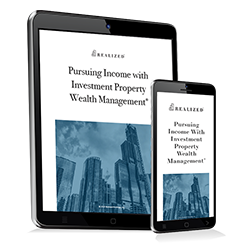Page 4 31 - 40 of 81
How Is Retirement Income Taxed Per State? Part 4

While your expenses will likely decrease once you reach retirement age, many retirees don't factor in potential taxes when budgeting out what their future expenses will be. Many states choose to tax some or all retirement income. You may also live in a state that doesn't tax any type of retirement income. Here’s an overview of how some states tax income.
How is Retirement Income Taxed Per State? Part 3

Whether you have recently retired or are nearing retirement age, you'll likely be thinking about your long-term financial situation. Before you start withdrawing from your 401(k) or spending your Social Security benefits, keep in mind that your retirement income can be taxed depending on the state you live in. Each state has different laws that dictate how retirement income is taxed, some of which are detailed in the following guide.
How is Retirement Income Taxed Per State? Part 2

If you're starting to think of retirement, you may be looking forward to moving past the daily commute and grind that are currently part of your everyday life. Whether you want to move to a different state or are content with staying where you are, the largest expense that most people have after reaching retirement age involves income taxes. However, many states keep retirement income taxes to a minimum. If you live in a state with high retirement income taxes, making a move in the near future may be beneficial. Here's a closer look at the retirement laws in 10 states and how they differ.
Who Should Manage My Retirement Portfolio?

Retirement is one of life’s most significant milestones, up there with the birth of a child and getting married.
How Is Retirement Income Taxed Per State? Part 1

Whether you're currently making large contributions to your IRA account or want to know what's going to happen to your Social Security benefits, you should know how retirement income is taxed in the state you live in. Every state has different requirements and laws related to retirement income taxation. While some states hardly tax any retirement income, other states tax almost all income types. This guide takes a closer look at how some states tax retirement income and if these taxes are balanced by property and sales taxes.
What Questions Should I Ask Myself Before I Retire?

A comprehensive retirement plan requires some extensive pre-planning to ensure you’ve built enough financial assets to live comfortably as you age.
What Should I Do One Year Before Retirement?

When we are younger, retirement seems like a far-off adventure for an unidentified someday, like exploring the Great Wall of China or the pyramid of Intihuatana at Machu Picchu.
How Much Does the Average Retiree Live on per Year?

Making sure you have enough money to last through your retirement requires careful planning years before you leave the workplace, as well as prudent budgeting during your Golden Years.
What Is the 4% Rule When Saving for Retirement?

Saving for retirement, and living comfortably through your retirement years, is a complex topic. So many factors impact the amount of money you may need, and most of them you can’t accurately predict. Of course, it’s better to have more than you need instead of not saving enough and running out too soon. To simplify things, financial planners devise “percent rules” to guide future retirees toward saving specific amounts, usually suggesting at least ten percent of your pre-tax income annually to ensure a secure retirement.
What Is the Biggest Expense for Most Retirees?

Determining the amount of assets and income needed to fund a comfortable retirement is a significant concern for many people, and it’s shrouded in mystery for some. How much money will I need? How long will I live? What’s the best way to safeguard my resources?
Page 4 31 - 40 of 81


